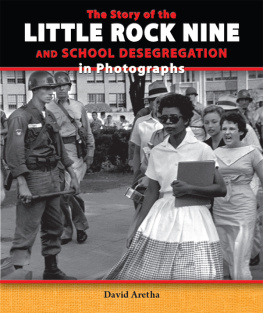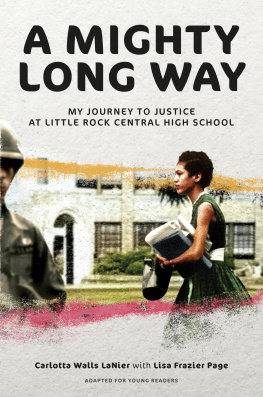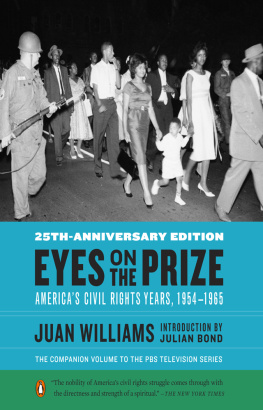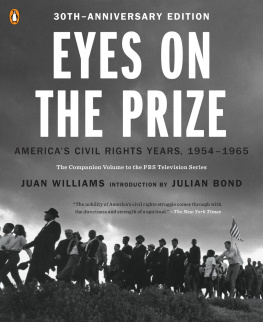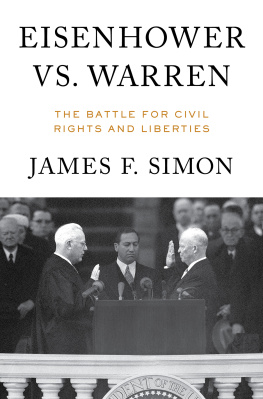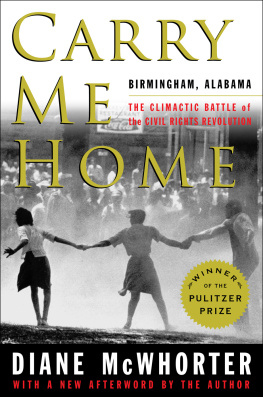IKES FINAL BATTLE
IKES FINAL BATTLE
THE ROAD TO LITTLE ROCK AND
THE CHALLENGE OF EQUALITY
KASEY S. PIPES

IKES FINAL BATTLE: The Road to Little Rock and the Challenge of Equality
A World Ahead Book
Published by World Ahead Media
Los Angeles, CA
Copyright 2007 by Kasey S. Pipes
All rights reserved. No part of this book may be reproduced in any form or by any means, electronic, mechanical, photocopying, scanning, or otherwise, without permission in writing from the publisher, except by a reviewer who may quote brief passages in a review.
Cover Design by Brandi Laughey
World Ahead Books are distributed to the trade by:
Midpoint Trade Books
27 West 20th Street, Suite 1102
New York, NY 10011
World Ahead Books are available at special discounts for bulk purchases. World Ahead Publishing also publishes books in electronic formats. For more information call (310) 961-4170 or visit www.worldahead.com .
First Edition
ISBN 10-Digit 0977898458
ISBN 13-Digit 9780977898459
Library of Congress Control Number: 2006933775
Printed in the United States of America
For Lacie
In memory of Robert Woodson, Jr.
the young man or woman writing today has forgotten the problems of the human heart in conflict with itself which alone can make good writing because only that is worth writing about, worth the agony and the sweat.
William Faulkner
CONTENTS
PREFACE
HISTORIANS, like archaeologists, often search for the Rosetta Stone. Something new, different, earth-shattering; a code that will unlock historys hidden treasures. Failing this, they return to their laboratories to conduct experiments on the past, hoping to determine a defining moment, a turning point or a seminal day when an immortal man shaped the steel of life with his own fire.
But history isnt archaeology. And politics is not a science, despite its frequent misnomer in the academy. The writing of history and the practice of politics are both arts. They require the broad strokes of empathy and a myriad of colors to fill the canvas with an array of people, emotions, ideas, and actions.
Having spent ten years in politics, including stints in a congressional office and at the White House, I know that politics does not neatly fit into theories or categories. Simply put, politics is about people. And people can make mistakes and make a difference. Usually, they do both. A writer must take both into account. Only in Hollywood do heroes always wear a white hat.
To borrow another metaphor, history more often resembles geometry: Different angles and various pieces fit together to form a whole. Anything else is merely the diameter, not the circumference.
Ikes Final Battle attempts to tell the whole story. The book offers the reader no exact turning points, no simple explanations for the events that transpired. It does offer a compelling, comprehensive human drama of a great man struggling to do the right thing in a difficult situation.
Like an engine, a penetrating question drives any great narrative. In this story, Dwight Eisenhowerwar hero and presidentmust decide how to grapple with the dawn of the modern civil rights movement. He must reconcile the related, but sometimes competing, interests of freedom and equality. Like all great narratives, this one seeks to bring the reader into the story with detailed descriptions of the action, the scenes, the players, and the stakes. And it strives to provide some context to the times and the issues that engulfed Ike throughout his career.
There is some Myth for every man, William Butler Yeats wrote, which, if we but knew it, would make us understand all that he did and thought. Undoubtedly, this book falls short of determining Eisenhowers Myth. It could not be otherwise. Only the man himself could answer that.
Rather than presume to view events from Ikes mind, this book attempts the reverse: to use the events in a way that at least partly reveals his mindset. It presents him as he was, in his own words, fighting his own battles. The facts and the events speak for themselves. The conclusions will be drawn by the reader.
An unconventional biography, this book focuses on one issueraceas a window into the soul of the main character. Great narratives offer great personal drama. Less concerned with policy-making than with soul-searching, this book seeks to determine not just what decisions Ike made on civil rights, but how he arrived at the decisions. What was he concerned about? Why did he struggle with the issue? Where was he headed? How did he talk about race with his friends and staff?
This fundamental tensiona struggle essentially within himself about what he ought to domakes the story so human, so compelling, so interesting. The story is unique, but the application is universal. Every person struggles with a moral issue at some point.
The first book on Eisenhower and civil rights in twenty-five years, Ikes Final Battle breaks new ground. Until now, most scholars, including the estimable Stephen Ambrose, have judged Eisenhower as a man who simply did what he had to do on civil rights. In a way, thats all truebut thats not all the truth. Mainly drawing upon primary source material, including newly released documents, this book shows a man who struggled mightily with the issue but generally was headed in the right direction throughout his life. As his attorney general later wrote, His heart was in the right place. And a mans actions eventually will reflect his heart. So it was with Ike.
The theme of redemption flows through the books pages. Human beings are seldom static. They are dynamic. They change, grow, evolve, and move forward over time. Ike himself sensed this, once explaining a blemish on his civil rights record to a young, black aide by speaking of forgiveness. This book is a compassionately critical look at the man, his struggles, his redemption, and, yes, his triumph.
Books, Barbara Tuchman wrote, are humanity in print. And here is Eisenhower in all his humanitystrong and vacillating, pro-active and reactive, certain and unsure, often right and sometimes wrong, searching, struggling, seeking, and, in the end, getting it right.
I say dont worry about plot, the writer Anne Lamont advised. Worry about characters. Ikes Final Battle centers on the man himself: as a young officer, as supreme commander and chief of staff, at Columbia and NATO, on the campaign trail and in the White House, and finally, in Gettysburg as an elder statesman. At each step in this journey, Ike found himself confronted by race. Only when all these pieces are fitted together does the whole story finally materialize and make sense.
This project, like its subject, evolved and grew over time. What started as an account of the showdown at Little Rock Central High in 1957 soon expanded into an exploration of its causes leading back to the Battle of the Bulge. What began as a project about civil rights transformed into a character study of Eisenhower. He is the character. He drives the story. He makes the book.
As a child, young Ikes temper often got the best of him, once leading him to violently smash his fists into a tree. His mother, Ida, consoled the bleeding boy with the words: He who conquers his own soul is greater than he who taketh a city.
Ikes Final Battle is the story of Eisenhower overcoming the greatest challenge any human ever faceshimself.
A word about language: Any author writing about race enters a linguistic minefield. As a general rule, I tried to navigate this by using the vernacular of the times of which I wrote. As the book progresses, the term Negro gives way to black, which then gives way to African-American. I hope the reader can tell that I tried to exercise great care and caution on these matters.
Next page

